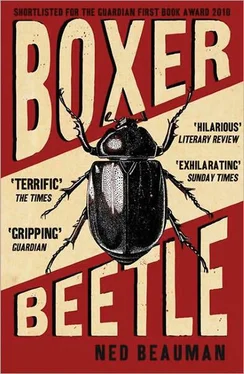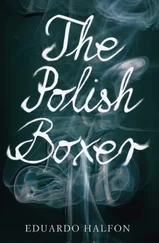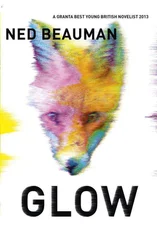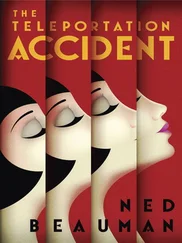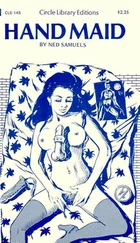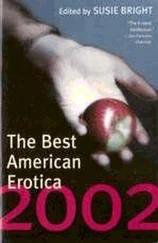‘What happened to Philip Erskine?’
‘He got married to an American girl. I can’t remember her name. Rich, though — family made a fortune in toothpaste, they said.’
‘No, I mean. …’ I glanced nervously at the Welshman. ‘Where is he now?’
‘The old bugger’s been dead about thirty years, pet. He’s buried near here.’
Could Erskine have faked his own death? No, I decided, that was preposterous even by the standards of the past twenty-four hours. But in that case I’d run out of theories completely.
‘And what happened to Evelyn?’
‘Got together with a lovely man from the wireless called Ronald Slater. They didn’t have much money, though, so things were a bit difficult by the end. Then she died, too. I’m the only one from those days that’s lasted this long.’ In fact, as I later learnt from The Perception of Harmony , the ‘dodecacophonist’ Evelyn Erskine struggled in her career as a composer, often forced to make ends meet by writing scores for Hammer horror films, before ending up at the BBC Radiophonic Workshop, where she did things with synthesisers that apparently no one has been able to replicate since. Around that time she began a long affair with Kasimir Mowinckel, who had fled to Gibraltar in 1942 with a suitcase full of his father’s secret diaries, been picked up by a British ship, endured six months of internment on the Isle of Man, and eventually started a new life in London as a sculptor.
‘And what about Seth Roach?’ I said. My voice cracked as I asked the question, because I realised at that moment that as soon as the Welshman knew the answer it might not just be Kevin Broom who would become fatally superfluous — it might be Tara Southall, too.
‘Oh, yes, that was what you wanted to know about, wasn’t it?’ she said. ‘The boy. You know, when Evelyn met him for the first time, that spring before what happened to Morton, she came back to me and she said, “That handsome little thug is going to change all our lives. I’m sure of it. He’s already changed my brother’s, and I don’t know how but he’s going to change mine, too.” But he didn’t, really, in the end. He didn’t really change anything for anyone. Such a pity what happened. We had to keep it all a secret, of course. Such a pity.’
For the third time in his life, Erskine stood outside the Premierland Boxing Club on Commercial Road. Two years ago, the first time he had come here, there had been what he had thought of, back then, as a very dense, noisy crowd — but what, in truth, had just been a timid and diaphanous rumour of human presence, a ghostly and almost imperceptible nuzzling at the elbows, a sort of cheap alternative to a lengthy rest cure on one of the lonelier banks of Lake Geneva in winter. Today, as he found himself compressed to the width of a cigarette by the amalgamated force of five hundred million vengeful Cockneys, he understood what a crowd really was. Ever since the indignity at Claramore Erskine had felt even more revolted than usual by the heat of other human bodies, and now he was being poached in that heat: an infinite merciless crush of Irish dockers and barefoot schoolboys and toothless drunks and purulent spivs and ludicrous Hassids, all howling, ‘They shall not pass!’ and ‘Down with Mosley!’ and ‘One, two, three four five, we want Mosley, dead or alive!’, as if Cadmus had taken the teeth from the poorest, filthiest, ugliest imaginable dragon and sown them in the grey compacted mash of shit and rags that in Whitechapel was what passed for pavement. Red flags and bedsheet banners fluttered in the air, children slithered up lampposts for a better view, and pregnant mothers leaned from the windows of the sooty tenement blocks on either side. As he shouldered his way desperately down Commercial Road towards a stretch that was merely unpleasantly packed, Erskine thought of how absurd it had been to come here. The previous week, when he had first read in the newspaper that the Blackshirts were planning a march through the East End, he had realised that a lot of Jews would come out looking for a fight; and he knew one East End Jew in particular who, despite his ignorance of politics, would surely never pass up a brawl of that size; so he had come back to Whitechapel, hoping he might just bump into that Jew by good luck. Well, he might have been an imbecile, but at least there was not even the remotest possibility that he would see anyone here that he knew.
‘I never forget a face.’
Erskine turned. Before him was a stocky man with scars on his cheeks and plump wet lips like slices of raw calves’ liver. The man wore an ostentatious cheap suit and brandished what must have been a chair leg. ‘You’re the posh cunt what was hassling Sinner that day after the match that night. Year or two ago.’
‘Yes — I suppose you must be right,’ said Erskine nervously.
‘Did you get what you wanted?’
Erskine coughed. ‘Not quite.’
‘Lost, are you? Your lot are down the road.’
Now one or two other men were looking at him with suspicion. Erskine imagined himself getting strung up by his toes. ‘No, no, I’m on your side.’
‘Oh, yeah?’
‘Yes.’
‘You sure about that, mate?’
‘Absolutely.’
‘Splendid. Can’t remember if we were properly introduced last time. My name’s Kölmel.’
‘Philip Erskine.’ They shook hands.
‘If you’re on our side, you won’t mind helping out, will you?’ said Kölmel genially, slapping the chair leg into his palm. He was balding, and the skin on his bony forehead looked stretched and sallow, like a condom pulled down over a fist.
‘Helping out?’
‘Yes.’ Kölmel was apparently serious.
‘No, of course not,’ said Erskine. ‘That’s what I’m — what I’m here for, after all.’
‘We’re building a barricade on Cable Street. There’s a dump round the corner. My boys’ll show you. Just get whatever you can — wood, tin, anything. And put your back into it, right? Wouldn’t want anyone thinking you’re a double agent or anything like that, ha ha!’
‘No, ha ha!’
‘See you, then,’ said Kölmel and gave him a pat on the shoulder.
How was it, Erskine wondered, that in the midst of all this chaos Sinner’s friend still had time to play this sadistic little game? He followed one of Kölmel’s henchmen south down Back Church Lane, another two at his back, then off to the right where rubbish was piled high in a fenced-off square of ground between two garment factories — mostly old splintered chairs and burst mattresses and smashed china, but also fishbones and pumpkins and pools of cooking oil and even, Erskine noticed with disgust, the rotting body of a mongrel dog. This, he thought, not brimstone, was the smell of the inferno — the perfume wafting from this crusty infected sore on the flank of the city. Climbing up the dump’s nearest slope, Erskine employed a technique which he had honed to perfection during cricket matches at Winchester, which was to look both busy and unobtrusive in a way that immediately made everyone else forget you were there — and, indeed, after he’d spent a few minutes making a vague show of picking through some wooden planks, the others started off towards Cable Street with their own armfuls of debris and did not even glance back to see if he would follow. He took out his handkerchief and wiped his fingers and sat down on an upturned bath and wondered what to do next. That was when he saw Sinner, climbing down the fire escape of the factory on the other side, with a tight black shirt on and a knife between his teeth like a pirate.
Back in August, when he got back from Claramore, Sinner had sold Erskine’s car to an associate of Kölmel’s and that had kept him in half board for a while, but although he still often felt as if his innards were planning a daring escape, five months in Erskine’s dubious care had left him looking presentable enough to get into the Caravan again, so a lot of the money had already gone on gin; and he certainly wasn’t willing to spend another winter on the streets or in St Panteleimon’s. Consequently in October, when he heard a rumour that somebody in Chelsea was paying cash for ‘Biff Boys’, he went off west the same day. He would do whatever he had to. By now, he didn’t get quite so angry when he happened to see a poster for a title fight at Premierland, with names that he didn’t even recognise. All that seemed a long time ago. Not that he didn’t still have dreams about being in the ring.
Читать дальше
